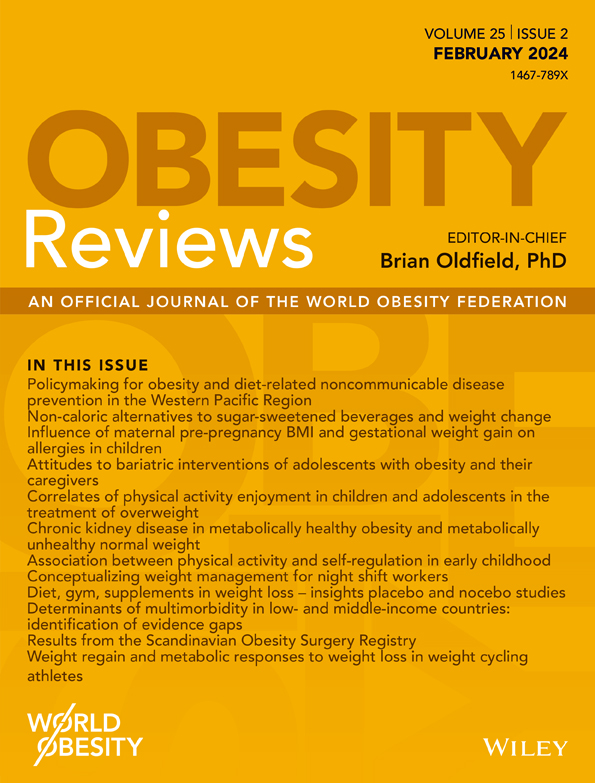Nutritional and functional outcomes in trials of nutrient-stimulated hormone-based therapy—A systematic mapping review
Abstract
Introduction
Currently, trials are investigating the efficacy of nutrient-stimulated hormone-based therapies (NuSHs) in promoting weight loss in people living with overweight and obesity. However, the extent to which nutritional and functional outcomes are evaluated remains uncertain. Thus, we conducted a systematic mapping to assess the presence of nutritional and functional outcomes in randomized controlled trials (RCTs) investigating NuSHs.
Methods
We conducted a systematic mapping search on the Cochrane Central Register of Controlled Trials (CENTRAL), which includes ClinicalTrials.gov and the International Clinical Trials Registry Platform for interventional trials of NuSHs registered from inception to December 31, 2023. We excluded non- and quasi-randomized trials, phase I trials, trials that did not include body weight as a primary or secondary outcome, trials with an intervention duration of less than 6 months, and trials that did not specify a body mass index threshold in their eligibility criteria. Outcomes included: dietary intake, eating behavior, body composition, physical performance, muscle strength, bone health, and levels of vitamins, trace elements, albumin, prealbumin, and hemoglobin.
Results
The search identified 2284 trials, of which 417 were included in the analysis. The proportion of RCTs that included nutritional assessment other than body weight increased over time. Approximately, 20.4% reported measurements of body composition, 17.3% reported measurements of albumin/prealbumin/hemoglobin, and 17% reported assessment of dietary intake and eating behavior. Evaluations of bone health, physical performance, muscle strength, and measurements of vitamins/trace elements were reported in less than 5% of the total trials each.
Conclusion
The present review has shown the sparse reporting of nutritional and functional outcomes in RCTs evaluating the impact of NuSHs.


 求助内容:
求助内容: 应助结果提醒方式:
应助结果提醒方式:


